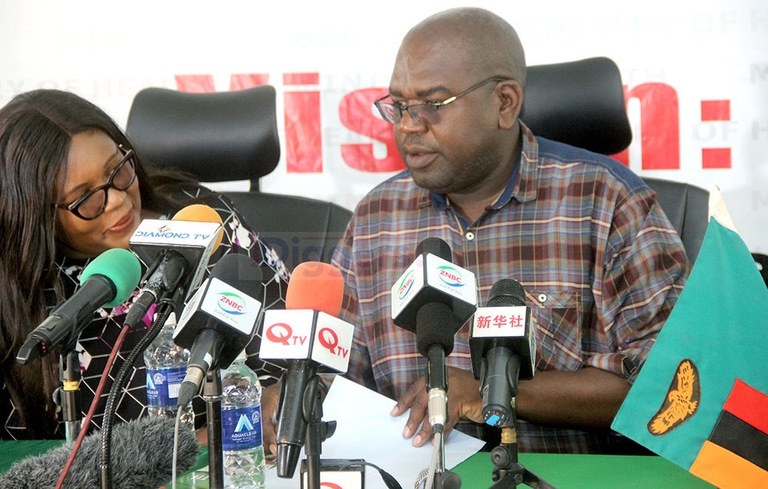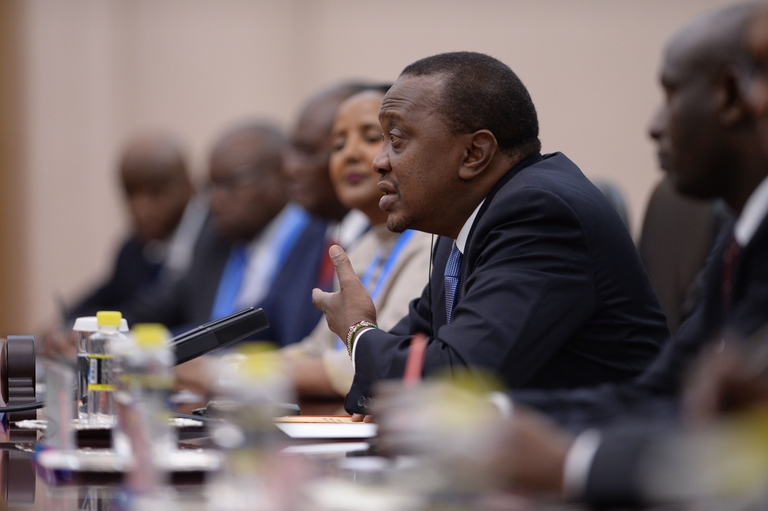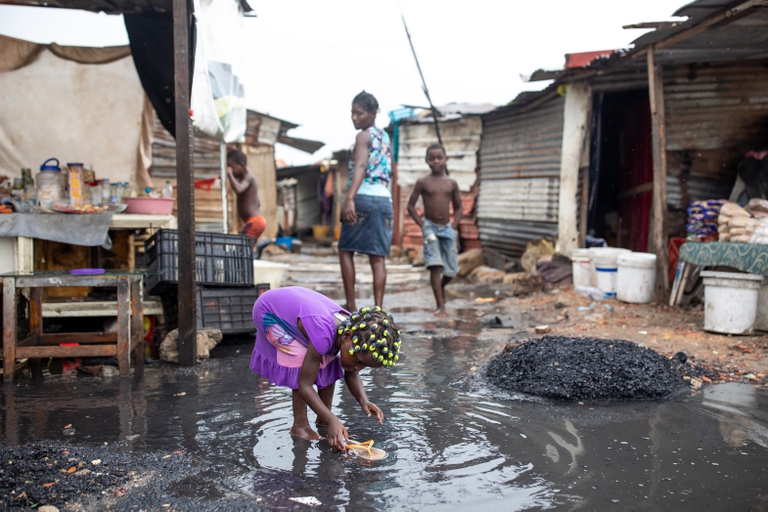
The second wave of the Covid-19 pandemic has shone a painful spotlight on the dire conditions of tea garden workers struggling against poverty in India.
The coronavirus in Africa could completely overwhelm healthcare systems neglected for years. Yet Zambia has refrained from imposing the type of far-reaching lockdown seen in nations such as South Africa.
As the coronavirus pandemic began wreaking havoc in Asia, Europe and the United States, the World Health Organisation (WHO) warned African countries to prepare for the worst, adding that it was a matter of time before Covid-19 arrived in the continent. For Zambia, that day came on Wednesday the 18th of March, when Health Minister Chitalu Chilufya reported its first cases, involving a couple who had travelled to France on holiday together with their two children. They were told to self-isolate upon their return and after testing both adults resulted positive but their children were negative. Currently, Zambia has recorded 45 cases, 30 recoveries and two deaths.
Human rights activists have accused the Zambian government of responding to the pandemic with emergency laws in conflict with basic dignity. “The Human Rights Commission is calling for respect for constitutionalism, the rule of law and human rights during the enforcement of guidelines on preventing the spread of coronavirus,” organisation spokesperson Mweelwa Muleya stated. “The commission is making this call against the background of numerous complaints it has received and its own observations on actions and public statements by some public officials advocating violation of human rights against individuals failing to comply with the guidelines”. In other African countries, some governments have armed security officers with guns, whipping batons and tear gas canisters leading, in one case, to a person being killed as a result of enforcement of measures aimed at curbing the spread of Covid-19.
Police in Kenya have ordered an investigation into the fatal shooting of 13-year-old Yassin Hussein Moyo. The boy had been standing on his third-floor balcony in a shantytown in Nairobi, watching police storm the neighbourhood using their batons to beat people who refused to abide by the curfew, when a police bullet struck him in the stomach. “I want to apologise to all Kenyans for some excesses that were conducted,” president Uhuru Kenyatta said.
Zambia‘s president Edgar Lungu announced the government wouldn’t close its borders unlike other Sub-Saharan nations, as this would lead to an economic meltdown. In a national address last month, he suspended all international flights except those landing and departing from Kenneth Kaunda International Airport in the capital, Lusaka. He also ordered the closure of gyms, bars, casinos and night clubs. Yet, “essential businesses dealing in goods and services will be kept running,” he stressed.
Join me as I update the nation on the status of COVID-19 Pandemic and measures being put in place.
The decisions of my Government are based solely on science, facts and global best practices in public health.
We are all in this together.#COVID19 https://t.co/vaTErRTiMG— Edgar Chagwa Lungu (@EdgarCLungu) April 9, 2020
South African president Cyril Ramaphosa has also acknowledged that the pandemic, which he termed a national disaster, poses a serious threat to the country’s struggling economy. His government has imposed a lockdown since the end of March, as well as its extension until the end of the April. The country is the worst affected in Africa, with over 2,415 confirmed cases, 410 recoveries and 27 recorded deaths. Though these figures are well behind the more than 850,000 cases and almost 80,000 deaths counted in Europe to date, experts warn that if the South African tide continues to rise, it could fail to turn the transmission curve.
However, the government’s containment measures have sparked criticism on the part of the opposition Democratic Alliance party, according to whom it “is a grave mistake to think in terms of lives versus livelihoods. Each death resulting from the virus is a tragedy. But so is each death resulting from caged starving citizens and worse frustrated by law enforcers, and so is each victim of home violence. And each malnourished child. And each newly unemployed South African”.
On his part, Emmerson Mnangagwa in Zimbabwe announced a 21-day lockdown starting on the 30th of March. But barely two weeks afterwards, the country has began to ease some restrictions to contain damage to its already shattered economy. The situation in the southern African state remains dire as health workers say they lack basics such as bandages and gloves to protects themselves as they take care of patients. In recent weeks, nurses and doctors have abstained from work over a lack of protective gear as the coronavirus begins to spread in the country of over 14 million people.
Meanwhile, all of Botswana’s parliamentarians as well as President Mokgweetsi Masisi have gone into a 14-day quarantine and have been tested for the new coronavirus after a health worker screening lawmakers tested positive herself.
How well you act will determine the speed with which we win this war and lift off the State of Public Emergency and consequent regulations.
Thank you so much and Happy Easter! #AdvacingTogether #WeCanBeatCovid19 pic.twitter.com/AnODjy41jA
— Dr. Mokgweetsi E.K Masisi (@OfficialMasisi) April 10, 2020
According to Johns Hopkins University, Africa has 15,831 confirmed coronavirus cases as well as 840 deaths, whilst 3,062 patients who have recovered so far. The pandemic has spread to 52 countries; all except Lesotho and Comoros. In most African countries, hotlines have been established to help people get reliable information about the situation. Yet despite efforts to shut borders and cities, one thing remains clear: social distancing is a privilege few can afford. For example, for people living in slums such as Povoado in Luanda, Angola or Kibera in Nairob, strict isolation or quarantine just aren’t possible.
The coronavirus pandemic has overwhelmed advanced health facilities such as those in Italy, the UK and United States, and experts predict it could devastate Africa’s fragile health systems already plagued by inadequate funding and equipment as well as labour disputes.
South Africa, which has one of the continent’s best public healthcare systems, has fewer than 1,000 intensive care unit (ICU) beds, of which 160 are in the private sector, for a population of almost 60 million. In Malawi, there are about 25 ICU beds in public hospitals serving 19 million people. Unfortunately, Zimbabwe’s main infectious diseases hospital in the capital Harare has none.
One good piece of news coming out Africa is that one the world’s great natural wonders, the mighty Victoria Falls – the continent’s biggest –, which lie between Zambia and Zimbabwe, have miraculously roared back to life, just months after a severe drought caused certain parts to dry up completely.
Read more: The drought in Zambia is causing starvation, a power crisis and threatening the Victoria Falls
According to authorities, the flow of water is now well above the seasonal average following heavy rainfall further up the Zambezi River. Unfortunately, however, few people will get to enjoy the magnificent view because Zambia and Zimbabwe have closed viewing sites as part of coronavirus containment measures.
Siamo anche su WhatsApp. Segui il canale ufficiale LifeGate per restare aggiornata, aggiornato sulle ultime notizie e sulle nostre attività.
![]()
Quest'opera è distribuita con Licenza Creative Commons Attribuzione - Non commerciale - Non opere derivate 4.0 Internazionale.
The second wave of the Covid-19 pandemic has shone a painful spotlight on the dire conditions of tea garden workers struggling against poverty in India.
In response to a lack of public services, organisations and individuals are helping citizens weather the devastating Covid-19 crisis in India.
A study indicates that the zoonotic origins of coronavirus may have been favoured by global warming’s impact on the conditions for bat habitats.
While Africa’s Covid-19 response has been praised by some, the pandemic has triggered the continent’s first recession in 25 years.
In Coronation, a documentary filmed by the people of Wuhan, the dissident Chinese artist documents the government’s rigid control during lockdown.
David Nabarro of the WHO analyses worldwide actions against the pandemic. Lockdowns alone aren’t a sustainable response to stopping Covid-19.
Kenya may fail to meet its target of ending female genital mutilation by 2022 as Covid-19 school closures have seen more girls undergo the illegal practice.
Helsinki Airport has begun implementing a Covid-19 test which is both noninvasive and simple. The exceptional nurses involved are dogs.
The drop in air pollution during worldwide lockdowns helped prevent thousands of premature deaths. But the situation is returning to pre-crisis levels.











